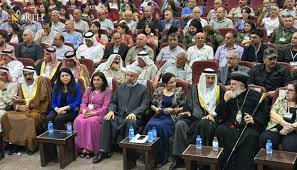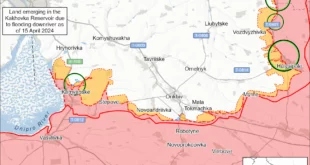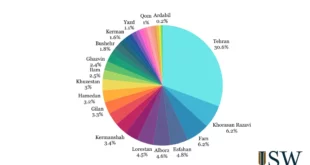Representatives of the diverse communities of north and east Syria convened this week for a landmark conference, issuing a final declaration that set out a vision for a democratic, decentralised Syria built on equal citizenship and shared governance.
The gathering brought together Kurdish, Arab, Syriac Assyrian, Turkmen, Armenian, and Circassian delegates — among others — united by what organisers described as a shared responsibility for the country’s present and future. The conference sought to affirm the cultural richness and historical depth of the region’s communities while confronting decades of marginalisation and exclusion under successive central governments, particularly the Assad regime, which participants accused of systematic identity suppression, social and economic weakening, demographic engineering, and denial of basic rights.
The declaration condemned ongoing abuses across Syria — including against communities in the coastal region, Suweida, and Christian populations — describing them as crimes against humanity that demand impartial, transparent investigations to hold perpetrators accountable, “whoever they may be.” Such acts, participants stressed, constitute crimes against the fabric of the nation as a whole.
Decentralisation as a National Framework
Delegates reaffirmed that ethnic, religious, and cultural diversity in north and east Syria is a source of strength, calling for its entrenchment in political and administrative structures to ensure full representation and societal unity. They endorsed the “Autonomous Administration” model as a participatory framework that could be refined and expanded, citing it as a living example of democratic community governance.
High praise was reserved for the Syrian Democratic Forces (SDF), whose sacrifices in defending the region were described as “essential to safeguarding the dignity of its peoples” and forming the nucleus of a future Syrian national army — professional, voluntary, and representative of the country’s social fabric, tasked with protecting its borders and territorial integrity.
In line with their stated commitment to Syria’s unity and sovereignty, participants argued that any lasting settlement must be anchored in a democratic constitution enshrining ethnic, cultural, and religious diversity. Such a charter, they said, should establish a decentralised state that guarantees all communities genuine participation in political and administrative life, in line with freedom of belief, social justice, and sound governance.
Reform, Justice, and Inclusion
The declaration rejected the current constitutional framework as inadequate to the aspirations of the Syrian people for freedom and dignity, urging a broader, more equitable approach to representation during the transitional phase. It called for a national reconciliation process grounded in transitional justice — encompassing truth-seeking, accountability, reparations, and guarantees of non-recurrence — to create the conditions for the safe, dignified, and voluntary return of displaced persons, while rejecting all forms of demographic change.
Women, youth, and civil society were identified as key actors in rebuilding Syria, promoting civil peace, fostering dialogue, and combating hatred, thereby ensuring genuine participation in state and community governance.
Participants further urged a review of Syria’s current administrative divisions to reflect demographic realities, development needs, and the historical, geographical, and cultural particularities of local communities.
The conference also discussed the Abdi–Sharaa Agreement and the outcomes of the “Unity of the Kurdish Position” conference, affirming both as constructive steps towards comprehensive national consensus.
Call for a National Conference
Looking ahead, delegates called for a broad-based Syrian national conference involving all democratic and national forces, aimed at defining a truly inclusive national identity and charting a shared future for all Syrians.
The final declaration closed with a pledge to build a free, united, democratic, pluralistic, decentralised Syria — a state governed by the rule of law, where human dignity is protected and all citizens live in freedom and equality.
 Eurasia Press & News
Eurasia Press & News



